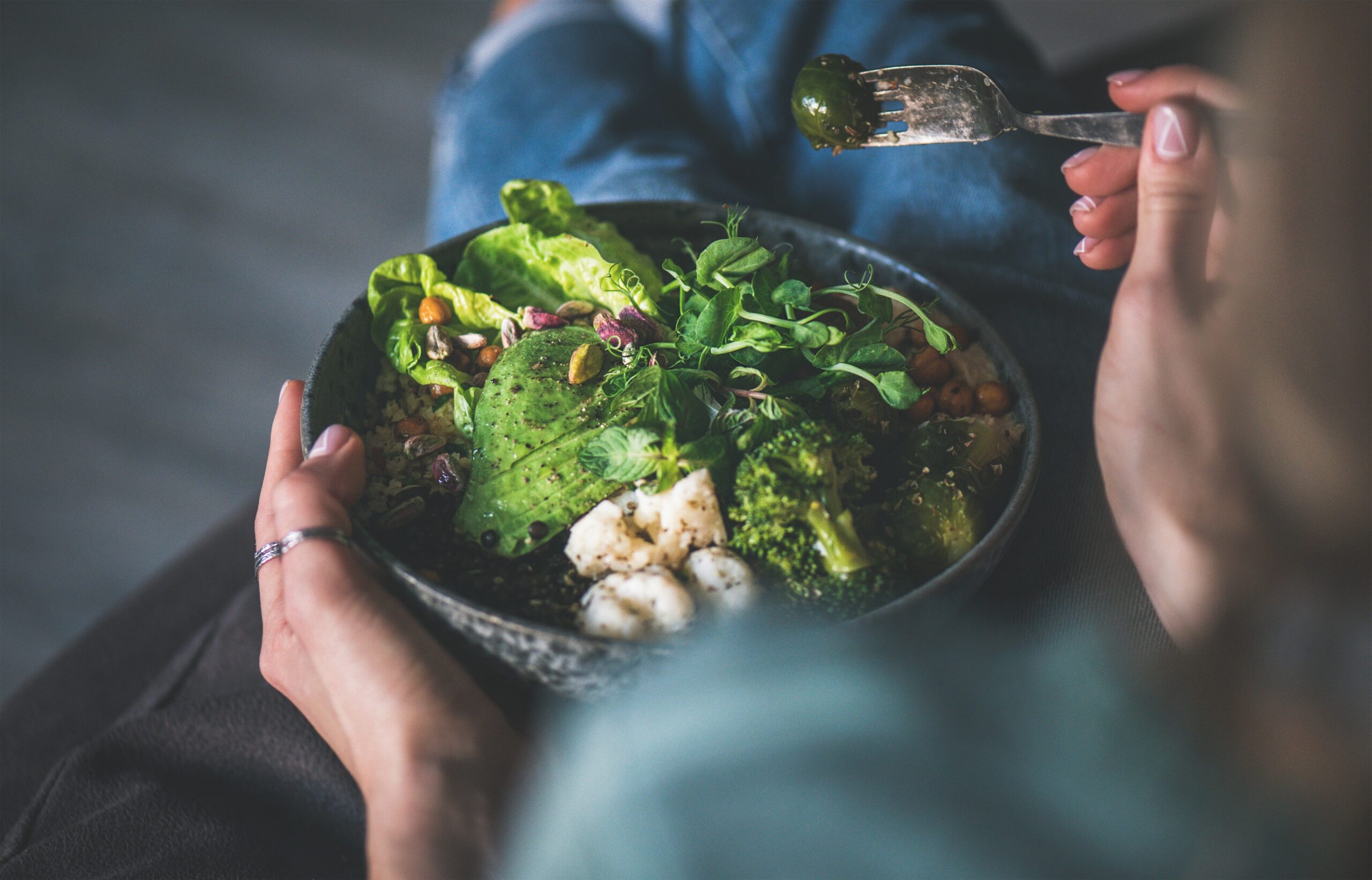Most people have heard of folic acid, but not everybody knows what it does or why it’s so important during pregnancy. If you’d like to learn more, read on for our complete guide.
What is folic acid?
Folic acid is the manmade form of vitamin B9, which is more commonly known as folate .
Folate is a really essential nutrient as, together with vitamin B12, it helps to make red blood cells. For women who are pregnant or trying to get pregnant, folate is especially important as it helps prevent certain birth defects.
Folate is so important during pregnancy that the UK government has announced plans to begin adding folic acid to non-wholemeal wheat flour i.e. flour used to make supermarket bread. This will increase the number of people having folic acid in their daily diet, and will help to prevent birth defects in hundreds of British babies each year.
What is the difference between folate and folic acid?
Folate and folic acid are essentially the same thing, and sometimes the names are used interchangeably. The difference is that folic acid is what we call manmade folate – this is why we talk about taking folic acid supplements.
How much folate do I need each day?
The NHS advises that the average adult needs 200 micrograms (mcg) of folate each day – pregnant women until week 12 of pregnancy and women trying to get pregnant need double this amount.
Folate can’t be stored for long periods in the body, so you need to eat folate-rich foods regularly. The good news is, the average person should be able to get all they need simply by eating a varied and balanced diet.
Which foods are high in folate?
Foods high in folate include:
- Broccoli
- Brussels sprouts
- Spinach, kale and cabbage
- Peas
- Kidney beans and chickpeas
- Liver (shouldn’t be eaten in pregnancy)
- Breakfast cereals fortified with folic acid
Folate is a water-soluble vitamin, which means it’s easily reduced during cooking. For this reason, it’s a good idea to avoid over-cooking your veg – instead of boiling, try steaming and microwaving.
Should I take folic acid supplements?
Most people won’t need to take folic acid supplements, as it’s easy enough to get in your daily diet.
However, folic acid supplements can be beneficial for certain people, particularly pregnant women. Find out which other supplements are important during pregnancy in our guide.
Folic acid might also be prescribed to people with folate deficiency anaemia or to people who are taking the medication methotrexate, as it helps to reduce side effects.
If you think you might not be getting enough folate in your diet, you can take over-the-counter folic acid supplements. However, it’s worth running this past your GP first, especially if you think you might have a deficiency.
##product-carousel:solgar®-folacin-folic-acid-400-µg-100-tablets,lloydspharmacy-folic-acid-90-tablets,betteryou-folic-acid-oral-spray-25ml,vitabiotics-pregnacare-conception-30-one-a-day-tablets,natures-bounty-gentle-iron-complex-with-vitamins-b12-and-c-capsules-x-100,nutri-within-b12-1000μg-180-tablets,natures-bounty-complete-b-vitamin-complex-caplets,solgar®-formula-vm-75-tablets,nutri-within-b-complex-180-tablets,vitabiotics-pregnacare-original-90-tablets,solgar-folate-metafolin-400-µg-100-tablets##
What does folic acid do in pregnancy?
Folate is really important during pregnancy because it aids with the healthy development of your baby. In particular, it helps prevent a certain type of birth defect, known as a neural tube defect.
The neural tube is the structure in an unborn baby that develops into the spinal cord and brain. When it doesn’t develop properly in the womb this can lead to conditions like spina bifida.
How much folic acid do pregnant women need?
If you are pregnant or if there’s a chance you could get pregnant, you should take 400 micrograms (mcg) of folic acid every day until you are 12 weeks pregnant.
For women with an increased risk of having a baby with neural tube defects, a higher dose of 5 milligrams (mg) might be needed – your GP or midwife will be able to tell you what you need.
It’s important for women to have healthy levels of folate before they get pregnant, so it can be a good idea to start taking folic acid before you come off your contraception or start actively trying to get pregnant.
How do I know if I have a folate deficiency?
Low levels of folate in your diet can lead to a folate deficiency. This in turn can cause a specific type of anaemia linked to lack of vitamin B12 or folate. This is where the body produces larger than normal blood cells that can’t function how they should.
Symptoms of folate deficiency include:
- Feeling very tired and lacking energy
- Pins and needles
- Mouth ulcers
- Red and sore tongue
- Muscle weakness
- Disturbed vision
- Memory issues and confusion
- depression
A folate deficiency is more likely to happen in:
- Older people
- Those who have pernicious anaemia
- People who lack vitamin B12 in their diets such as vegans
- Those taking certain medicines as this can affect how much of these vitamins your body absorbs
If you think you might have a folate deficiency, it’s a good idea to speak to your GP.
##cta##Shop vitamin B
Can I get folic acid on prescription?
Folic acid supplements are readily available in pharmacies, however you can also get folic acid on prescription.
You might need a prescription of folic acid if you need a higher dose than is available in pharmacies, because you:
- Have folate deficiency anaemia
- Are pregnant and your child has a high risk of neural tube defects
- Are taking the medication methotrexate
However, most people – pregnant women included – should be able to get folic acid supplements in the dosage they need by buying them in the pharmacy.
References
www.nhs.uk/conditions/vitamins-and-minerals/vitamin-b
www.bda.uk.com/resource/folic-acid.html
www.nhs.uk/medicines/folic-acid
www.nhs.uk/conditions/spina-bifida
www.nhs.uk/conditions/vitamin-b12-or-folate-deficiency-anaemia
www.nhs.uk/conditions/vitamin-b12-or-folate-deficiency-anaemia/symptoms
www.nhs.uk/conditions/vitamin-b12-or-folate-deficiency-anaemia/causes
https://bnf.nice.org.uk/drug/folic-acid.html
Source link

Leave a Reply